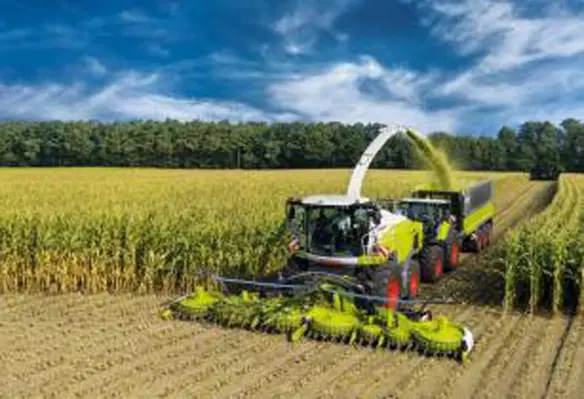When we talk about energy, fossil fuels and petroleum come to mind as the major sources globally, however, the 21st century is bringing change
We are living in an era of increasing environmentally awareness towards more sustainable, eco-friendly fuels and renewable energy production. For example, biogas acts as a green energy source, while providing a method for disposal of various waste materials.
Rising construction of biogas digesters in developing countries started in the 1970s and there are now around 4 million biogas plants in India and 27 million in China. It is clear that the growing demand of green energy is not only a phenomenon in developed countries but also in regions driven by agriculture such as Southeast Asia. Even though producing green energy is sustainable in terms of raw material procurement, operational tasks still require cost-effective management and efficient use of machinery which remain challenging in this region.
In Thailand for instance, the current utilisation of biogas energy is estimated at more than 190 MW, with an enormous biomass energy potential remaining to fulfil the country’s additional energy requirements. Thailand’s board of investment (BOI) promotes the production of electricity from renewable energy sources, such as biogas, with an eight-year tax-holiday and an exemption of import duty on machinery. The country is implementing community-based projects, which will allow the use of energy crops such as Napier grass for decentralised production of renewable energy. Widespread experience in the biogas deployment has already been gained in this region, however, professional machinery solutions are required to make use of the full potential.
 CLAAS products for high-quality raw material processing at high capacity
CLAAS products for high-quality raw material processing at high capacity
Fully integrated process chains are essential for the ecological and economic success of biogas operations. Especially the harvesting quality of the raw material with an equal chopping length and constant material processing are vital factors to achieve the highest gas yields while running the biogas plant at its full capacity. It is challenging to accomplish this with small size forage harvesters attached to a tractor which are commonly known in Southeast Asia. In particular the daily material demand of around 400 tonnes napier grass for a 3 MW biogas plant requires professional, large-scale machinery. Here, CLAAS as one of the world’s leading manufacturers for agricultural machinery offers a complete product portfolio for the entire agricultural process chain.
CLAAS machinery covers multiple applications to keep the biogas plant running efficiently, starting from the TALOS and ARION tractors for land preparation and seeding up to the self-propelled forage harvester JAGUAR for effective material processing with high throughput. The tractor pulled forage wagon CARGOS is used to match the material logistics of the forage harvester and is essential in reaching the daily material demand while reducing soil compaction in comparison to a truck on the field.
The process chain is completed with the large AXION and XERION tractors for material compaction on the silage pit and material handling with the SCORPION telehandler. Once the biogas plant has digested the raw material, residues are left over which are nothing less than valuable fertiliser for the next crop rotation. Completing the organic nutrient cycle in the field requires machines for residual management where the above mentioned tractors and attached spreaders are ideal. The universal use of tractors with multiple applications plays an important role to achieve year around utilisation to make the most out of machinery investments.
See CLAAS location click here
Watch CLAAS machines working for Biogas in Europe click here
Watch CLAAS JAGUAR working around the world click here
Watch CLAAS Machines working on cane residue collection in Thailand click here
About CLAAS:
CLAAS (www.claas-group.com) is a family business founded in 1913 and is one of the world’s leading manufacturers of agricultural engineering equipment. The company, with corporate headquarters in Harsewinkel, Germany, is the European market leader in combine harvesters. CLAAS is the world leader in another large product group, self-propelled forage harvesters. CLAAS is also a top performer in world-wide agricultural engineering with tractors, agricultural balers and green harvesting machinery. The CLAAS product portfolio also includes state-of-the-art farming information technology. CLAAS employs around 11,395 workers worldwide and reported a turnover of 4.04 billion euros in the financial year of 2020.
For more information, please visit claas.com and claas.co.th
YouTube/CLAAS South East Asia
Instagram@claas_sea




